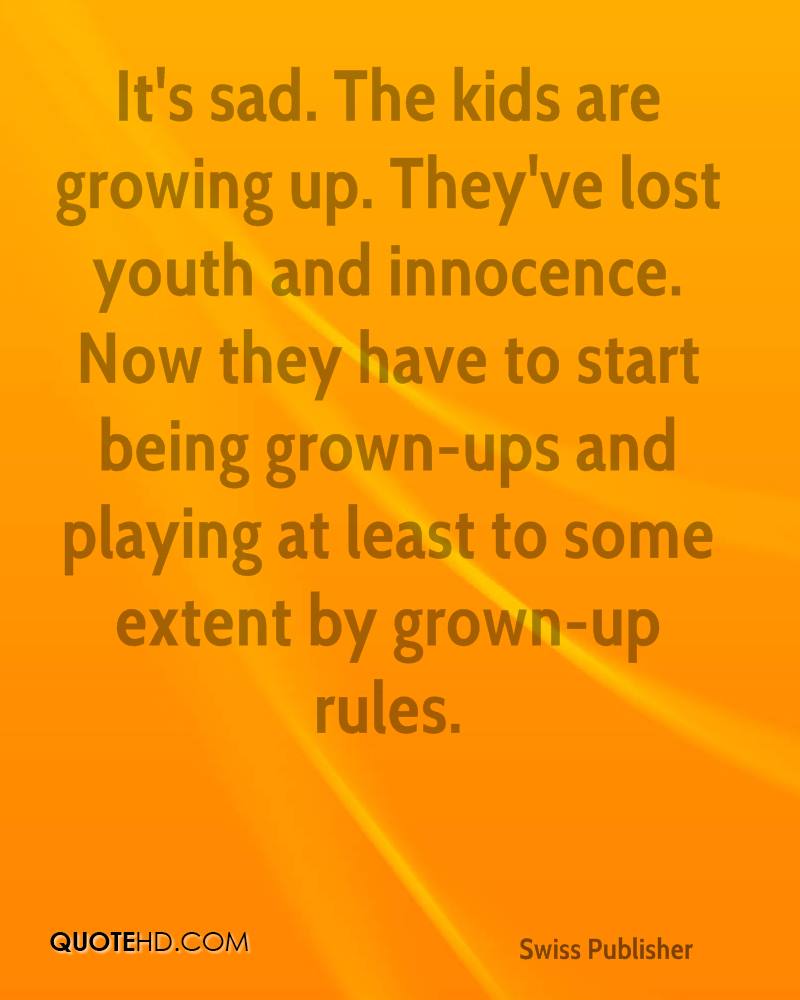
"Preface to a Twenty Volume Suicide Note" by Amiri Baraka When I was a kid, my dad would change the last line for me and my sister to 'and what's more, you'll be a woman my daughter' and that just meant the world to me because yes, you can do all these things that a century ago made you a 'man' but you can own them as a woman."ģ.
SAD POEMS ABOUT GROWING UP HOW TO
It's got such a beautiful message of how to deal with life and those around you, how to temper yourself but not lose your joy. Dad not only had us read from it, but would ask us what we thought it meant. The second stanza is the first part of anything I ever memorized. Before we could read, he would read it to us, and once we began reading he encouraged us to practice by reading it aloud to him at night.

"When I was growing up, my dad had a beautiful calligraphy copy of the poem on his bedroom wall, given to him by his father. This poem successfully describes how we may feel to lose something that we love and grow up eventually without it."That poem by Larkin (and some others) taught me how direct and economical you can be with language, and about how modernity isn't so great." If metaphorically, then it is the story of mankind learning to deal with the loss of their loved things or people. If literally, then it is a soulful picture of little boys growing up and learning to deal with the loss of the first in his possession. Thus the reader may interpret this poem literally and metaphorically both. And as it drifts further away, the little boy will learn to grow up, and that part is linked to that ball grows up as well, until it is no longer a little boy. We may visualize how the spirit of this little boy, like the ball, is sinking into the dark waters of the harbour. The poet has made the use of the imagery while telling how the ball personifies the spirit of the boy’s childish innocence. Therefore, we have to learn to accept and let go. Obviously we need to be strong and get on with our life, irrespective of the sadness inside. But, despite all of these we have to learn to stand up. And once we lose our innocence, then we cannot get it back. People may take balls just as they will take away our innocence and force us to grow up soon. In this poem, the boy’s ball van is easily personifying with his young days and which were happy and innocent. But, money is external and immortal here, as it cannot buy back the love and hence cannot replace the things that we love. One can get another ball with a very less amount of money. But to a little boy, this is something different. Our natural reaction may be that still there are many more balls. Maybe for us, the loss of a ball is of minor consequence. It is about a little boy, who in his young life, for the first time, is learning what it is like to experience grief after the loss of a much-beloved possession which is here his ball. This poem is about losing something which we love and then learning to grow up. Therefore we need to learn the way for bearing those losses. As long as there is life, everyone has to bear many types of losses. The losses may be the loss of personal possession or the death of some near and dear one or due to the separation from the beloved one. Here, the lost ball stands for the general loss of a human being.

The poet feels that no other ball will be sufficient to lessen his sadness.

Once the ball bounces out of his control and consequently falls into the water. The poet assumes a boy who is playing with a ball.

SAD POEMS ABOUT GROWING UP FULL
He gave a lesson that is full of wisdom through the loss of everyone, must learn to bear the pain associated with loss. Its poet John Berryman is beautifully describing a boy who has lost his ball. The Ball Poem summary is for students of class 10 English. 1.1.1 Conclusion of The Ball Poem Summary of The Ball Poem


 0 kommentar(er)
0 kommentar(er)
